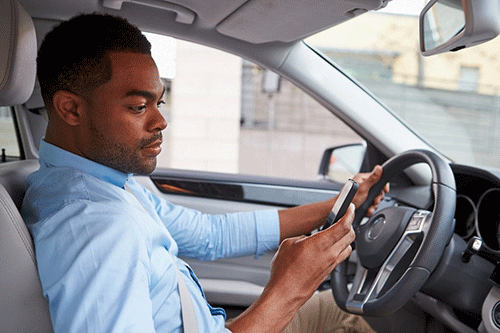Distracted driving has become a widespread and dangerous epidemic in the capital city. This particular driving behaviour is observed on a daily basis and on average 50% of traffic transgressions are a result of distracted driving. Distracted driving happens when a driver takes their
eyes off the road or removes their hands from the steering
wheel to text, eat, adjust the radio or reach for something. A motorist can also lose focus when engaged in a phone conversation, daydreaming or being overly stressed.
In an age where smartphones, navigation systems, and in-car entertainment are present, the temptation to engage with these devices
while behind the wheel is greater than ever.
However, the consequences of distracted driving are severe, often resulting in accidents that could easily be prevented. The most notorious and dangerous form of distracted driving today is texting or using a smartphone while driving. Sending or reading a text message can take a driver’s eyes off the road for an average of five seconds, which at highway speeds is equivalent to driving the length of a football field blindfolded.
Accidents caused by distracted drivers
often result in severe injuries or fatalities, but they can also result in property damage. Victims of these accidents may experience physical and emotional trauma, long-term disabilities, and even loss of life.
Recognising the seriousness of the issue, the City Police enforces laws that prohibit texting and the use of handheld devices while driving.
Distracted driving is a growing epidemic
with deadly consequences.
It is important for motorists to recognise the seriousness of distracted driving and adjust their attitude to prevent further loss
of life and injury on our roads. As
individuals, we must commit to being responsible drivers by staying focused on the road and resisting the temptation to engage with our phones or other distractions while driving. Ultimately it is our collective responsibility to make our roads safer for everyone.
*Contact the Windhoek City Police Service on 061 302 302 or 061 290 2239 for any emergencies and crime related issues.



